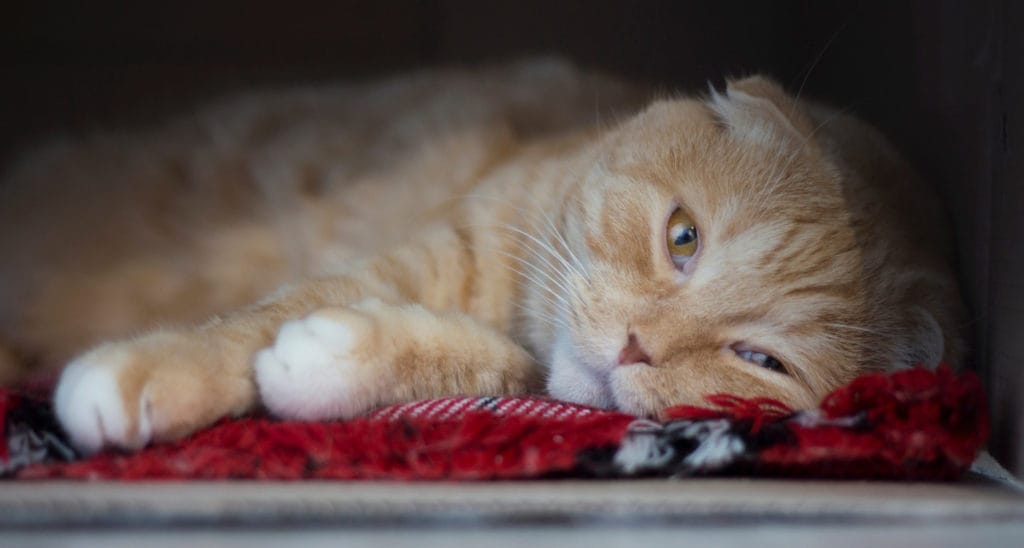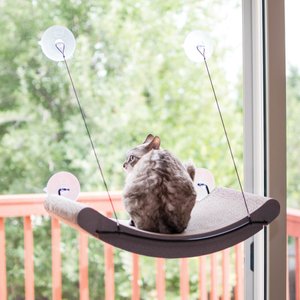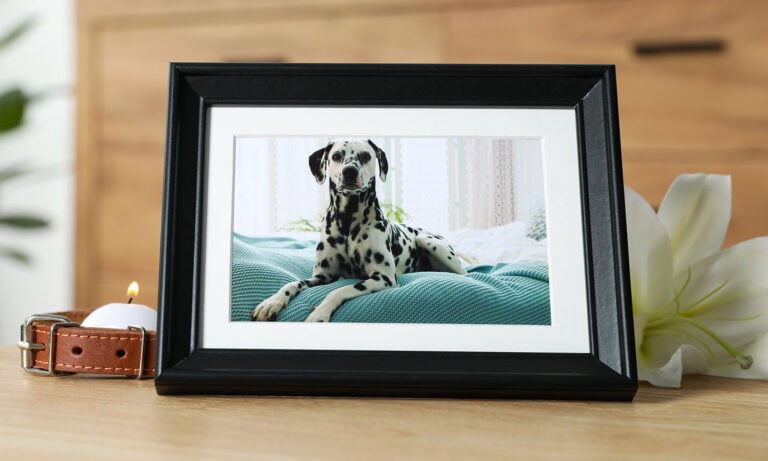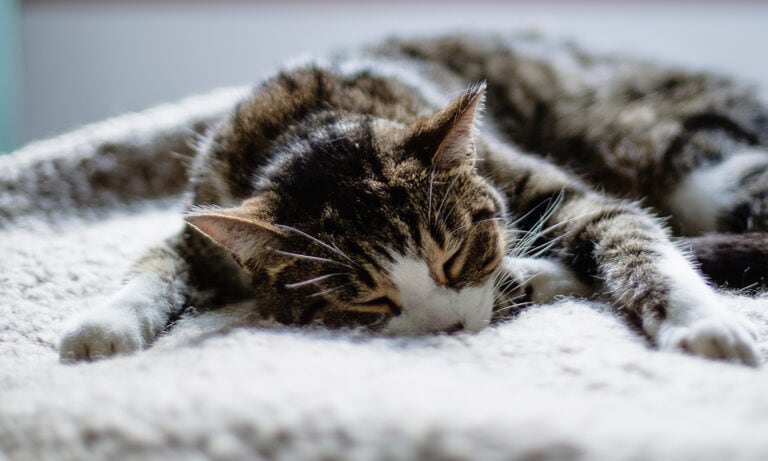Just like humans, cats can exhibit symptoms of depression. Signs of cat depression include changes in appetite, behavior, and activity level. Some depressed cats might act out by urinating or defecating outside their cat litter box, while others may exhibit physical symptoms including nausea and lethargy.
“Our pets experience the same gamut of emotions that we as people do,” says Dr. Rachel Barrack of New York City’s Animal Acupuncture. “And just like people, our cats are individuals.” Each pet experiences and exhibits signs of depression differently, she said.
If you suspect your cat is depressed, here are six simple steps you can take to alleviate their cat depression and help them get back to their old self.
Go To The Vet
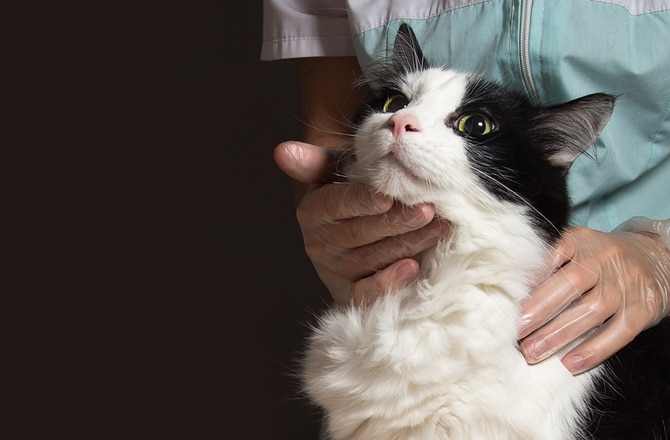
The symptoms of cat depression can mirror those of many serious medical conditions, including diabetes, kidney failure and pancreatitis.
“Most major medical diseases cause some kind of discomfort,” says Barrack. “The cat could be in pain and it’s manifesting as signs of depression.” Before you write off any symptoms as signs of cat depression, bring your pet to the vet immediately to rule out anything more serious, she says.
Pinpoint The Cause of Your Cat’s Depression
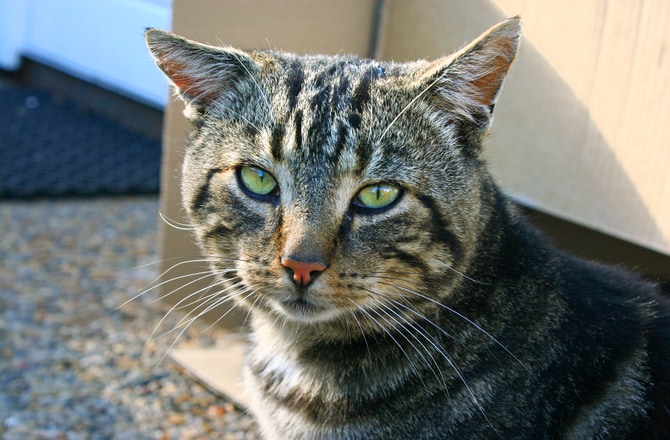
“Once we rule out a medical condition, the most common cause of depression in cats is a change in their environment,” says Barrack.
A move, a new work schedule, or the addition of a new family member (be it furry or human) to the household can all be stressful events for pets. Cats may also experience depression when they’re first adopted and brought into a new home, or after the death of an owner or companion animal.
Reflect on recent changes in the cat’s environment and see if you can find potential causes of the depression.
“It’s important to address the root of the problem and not just the symptoms that your cat is showing,” says Barrack.
Spend Time Together
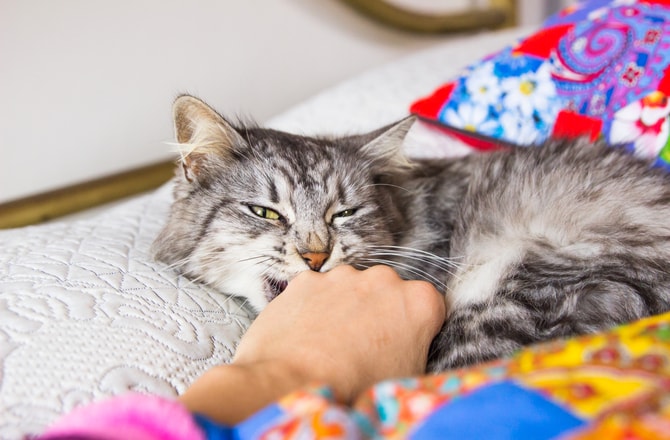
“Cats are not pack animals like dogs, but they do require interaction,” says Dr. Judy Morgan, a holistic veterinarian and author of several books including “From Needles to Natural: Learning Holistic Pet Healing.”
Often just spending quality time with your furry friend can help them out of their cat depression, she explains.
Stop and give your cat at least a moment of attention every time you’re in the same room. Take time to sit with them, hold them, and play with them every day. Let them know you’re there for them.
“Don’t forget the power that a warm spoken word, stroking of the fur, or cuddling can offer,” said Dr. Shelby Neely, a cat veterinarian and behaviorist based in the Philadelphia area. “Cats are not the aloof, independent creatures they’ve been made out to be. They very much want your attention and love.”
Encourage Your Cat to Play
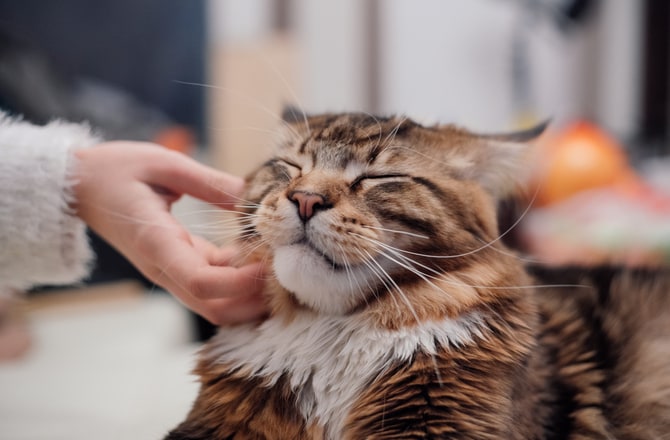
Sometimes the signs of cat depression can be a manifestation of boredom, says Neely. If you engage cats in enriching play they’ll be healthier and happier.
“Imagine how cats hunt in the wild for their prey. They stalk, pounce, climb, leap into the air, all the while using their keen senses of vision, smell, and hearing,” she says. “Allowing them to imitate these behaviors indoors will help keep them entertained and happy.”
Give your cat toys they can play with by themselves as well as toys you can use together. Electronic cat toys that move on their own and/or mirror the appearance of prey are all great tools for engaging your cat.
Laser lights, such as the Ethical Pet Laser Exerciser, are also fun, says Morgan, but be sure to give your pet something to catch. Chasing a light constantly with no reward can make a sad cat even more frustrated.
Give Your Cat A Place To Climb And Hide

Cats are climbers. In the wild, they seek out high vantage points to survey the terrain and hide from predators.
You might be able to cheer up your cat by giving them vertical places to play and act out their natural instincts, says Morgan. Tall cat trees and window ledge perches are excellent solutions, she adds.
If you’ve brought new people or pets into the home, it’s also important cats have a place to go when they need some privacy.
“Cats like to have their own space,” says Barrack. “Give them an enclosed space they can retreat to comfortably for some personal time.”
Call In The Experts
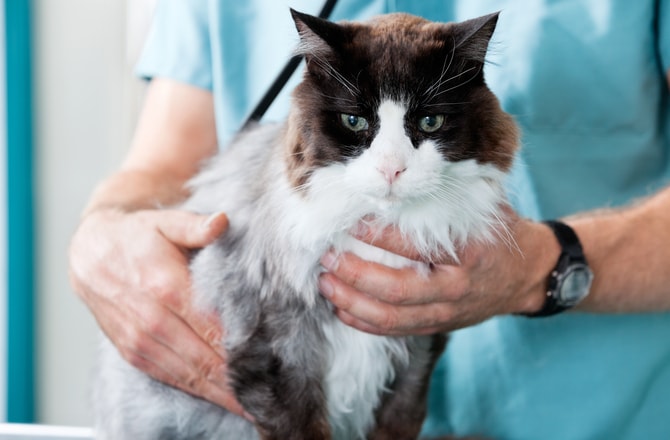
If the above suggestions don’t help your cat’s depression, it may be time to call in the experts.
A board-certified animal behaviorist or veterinarian may be able to help with behavior modification exercises or other treatments—such as acupuncture, nutritional supplements, homeopathic treatments—that will help your pet.
No matter the cause of your cat’s depression, it’s important to get the advice of a professional. All cats are different and treatment will be based on an individual cat’s symptoms.
“With depression and any other medical condition, one size doesn’t fit all,” says Barrack. “It’s important to speak to your doctor to determine what’s best for this specific animal in this specific situation.”
Helen Anne Travis is a freelance writer based in Tampa, FL. She also writes for CNN, The Guardian and The Globe and Mail.
Share:
